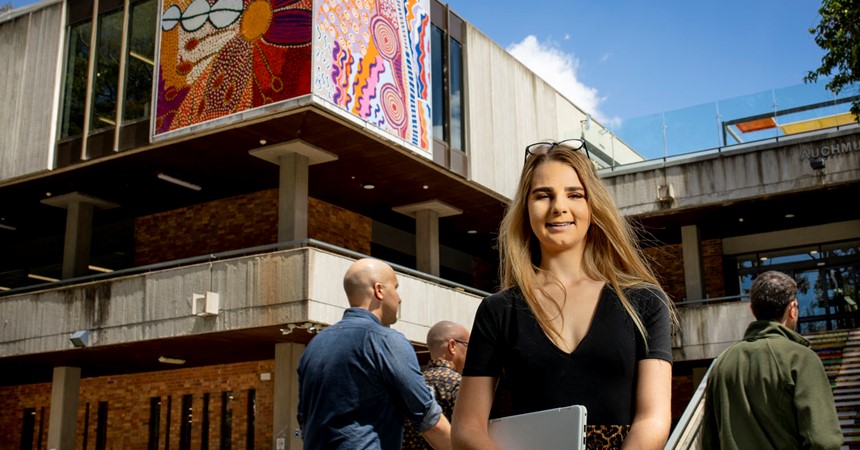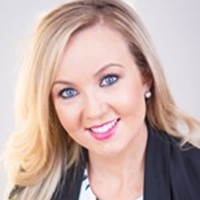The motivation for the 19-year-old “care leaver’s” career path comes from the heart.
“I always found my caseworkers to be a great support,” Ms Peterson Mansfield said. “I want to be able to provide others with the same level of care I received, whether that be through out-of-home-care, aged care or working in other, similar environments.”
In Australia, children who experience out-of-home (foster) care are drastically underrepresented in higher education. However, the University of Newcastle is on a mission to change this scenario for care leavers.
In 2015, the university in consultation with stakeholders across the sector, developed an innovative project that seeks to enable care leavers to engage with higher education.
Live Learn Grow (LLG) is the first program of its kind in Australia and provides practical, academic and social support to open up opportunities for students with a background in care to access and actively participate in higher education.
To date, the program has supported 40 people, including Ms Peterson Mansfield.
Emily Fuller works as part of the LLG team as a “navigator”. Part of Ms Fuller’s role includes working with children and young people currently in care, their caseworkers and carers, to talk about education and post-care options and to support young people navigate higher education systems.
During the first two years of the program, 75 per cent of participants indicated that before engagement with the LLG team no one had spoken to them about university as an option; and 90 per cent said they would have withdrawn from study before Census Date without the support of the LLG program.
“We understand that attaining a higher education is not of interest to everyone,” Ms Fuller said. “However, our aim is to ensure that care leavers understand that, regardless of their background, they have an opportunity to pursue post-secondary study in a supported environment, if they want to.”
Ms Fuller said anyone with a prior care experience who is interested in studying with the University of Newcastle can apply for the program.
Ms Peterson Mansfield found out about the program through her caseworker in 2016, when she was in Year 12. She had been experiencing bullying and did not want to complete Year 12. But with support from Ms Fuller in the LLG team, she was able to enrol in the Newstep program.
“Once enrolled, the LLG program continues with processes such as finding suitable accommodation, identifying employment opportunities at the university, navigating course structures, applying for scholarships and providing social and emotional support,” Ms Fuller said.
Ms Peterson Mansfield says while she always aimed to complete her Honours in Social Work, the support provided through the LLG makes the journey a lot less stressful.
“LLG has given me a lot of knowledge that I wouldn’t have otherwise known and given me the confidence to not only ask for help but know who I am best to seek advice from,” Ms Peterson Mansfield said.
“Had I not been part of the program, I think it would have been reflected in lower grades.”
Ms Fuller has also assisted Ms Peterson Mansfield to seek employment at the university, which she loves.
“I assist with events at the university, which have provided a great opportunity to meet fellow students,” Ms Peterson Mansfield said.
CatholicCare Social Services Hunter-Manning employee Kylie Britliffe mentors Ms Peterson Mansfield as part of the Supported Independent Living (SIL) program.
Ms Pratt says she had been impressed by the opportunities afforded to Ms Peterson Mansfield through the LLG program.
“University can be daunting,” Ms Britliffe said. “The LLG program complements CatholicCare’s SIL program by providing customised support, specific to students’ higher education experience, which has been invaluable when navigating the, at times, complex higher education system. As well as being convenient, securing employment on campus has also been great at building Ms Peterson Mansfield’s social and financial independence.”
In 2018 the Live, Learn, Grow program received an Innovation Award from the Association of Children's Welfare Agencies for innovative practice responding to an area of need in the community.
The framework has the potential to be adopted for other groups in the community that may also have lower transition rates into higher education.




























































































